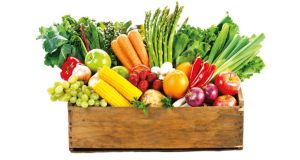 Blog from Dan Kelly, Deputy MD, Food & Operations, Vacherin
Blog from Dan Kelly, Deputy MD, Food & Operations, Vacherin
It’s unacceptable that in 2019 we are still wasting a third of the world’s food. Growing up, I was taught to make the most of every ingredient. We found ways to incorporate leftovers into different dishes, and the creativity involved in that process is one of the reasons I decided to become a chef. That early life lesson was reinforced while I was training; I learnt to use every single part of every vegetable.
The Shard in London could be filled 11 times over with the amount of food wasted in the UK alone. This isn’t just unacceptable, it’s unsustainable. Research suggests that by 2050 we will run out of space for food production in this country.
Almost half (40 per cent) of produce gets wasted before it gets to caterers. If we want to prevent food waste, we have to begin with sourcing and be conscious of every partnership we create. Vacherin chooses suppliers according to their ethics. We then use that partnership to push for more and work to ensure that, together, we minimise food waste wherever possible. This is only the first step in the process though.
Once the food reaches a caterer, it’s their responsibility to think about how best to prepare it and reduce waste. At Vacherin, we run workshops on how underutilised vegetables can be integrated into dishes to add flavour and nutrition. For example, the stem of a broccoli has more vitamin C than an orange, but it often isn’t used because it doesn’t look as appealing as the florets. The stem makes for a great addition in soup or stir fries. Cauliflower stems can be BBQed to make a vegetarian side that is crunchy and gives that same smokiness that barbecued meat does.
Vacherin first launched its ‘Imperfect’ initiative back in 2014. There wasn’t a demand for underutilised ingredients then as food waste wasn’t high on the agenda. Now, it’s top of the priority list. The first question we get asked when we go to tender is, ‘What are you doing about food waste?’. It warms your heart to know that people honestly care about sustainability and are prioritising making a real change. It’s not just those who are being pressured by public demand either; the supply chain has undergone an attitudinal transformation as well.
It used to be near impossible to find waste-conscious suppliers. At The Vegetable Summit only a couple of years ago the main caterers and suppliers claimed that to make a real change was too difficult logistically. Those same companies are now supporting the government in finding a real and sustainable solution. We’ve seen so much improvement in five years, but there’s definitely more work to do. It won’t be enough to just throw away a little less here and there; we are already seeing that. To make a real difference we need to see collaboration throughout the industry and in the supply chain. When everyone is invested, we will see a truly sustainable food chain from source to plate.




